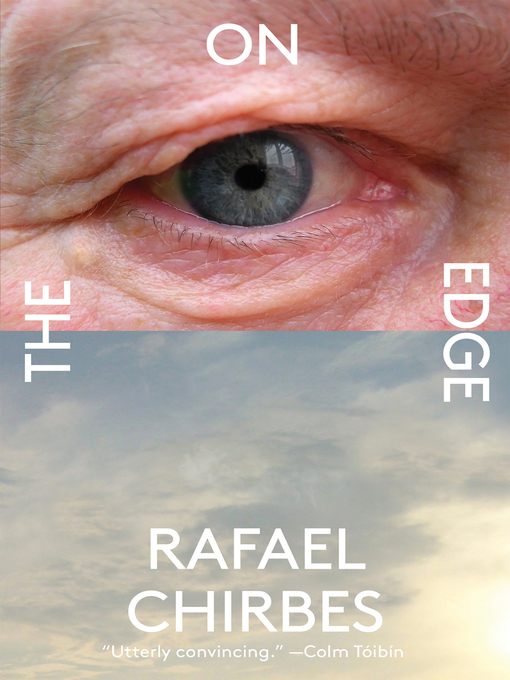
On the Edge
کتاب های مرتبط
- اطلاعات
- نقد و بررسی
- دیدگاه کاربران
نقد و بررسی

November 16, 2015
Midway through this novel, narrator Esteban says, “It’s all hot air.” He’s talking about Internet sex chat rooms, but the phrase could also be deployed for the tone of the book—hot, angry, sweaty—which unfurls over nearly 500 pages. Chirbes, who passed away in August 2015, is one of Spain’s premier writers, and he is at his best when fully immersed, as he is in this novel, in the enormous economic fallout of Spain’s recession. The book loosely follows Esteban, who has been forced to close his carpentry shop due to a lack of business, and leaps between his feelings of failure and monologues in which he lashes out at his father, a former political dissident (and, it seems, a generally bad father) who is now in the care of his son due to his vegetative state—which Esteban describes as looking like “shop-window mannequin.” The book occasionally loops in third-person narratives of townspeople; the first few pages begin with the story of Ahmed and Rachid, two men left unemployed following the closure of Esteban’s carpentry shop. Each small narrative embroidering Esteban’s blurs in and out confusingly—this is a book with only three chapters, and the middle chapter itself is more than 400 pages. Esteban’s tone is wrathful and relentless as it seizes upon sex, race, and money (“Money, among its other virtues, has a detergent quality”). If Proust and an Old Testament prophet had collaborated to write about Spain’s recession, it might have been something like the writing here—agonized, dense, full of rage, and difficult to forget.

November 1, 2015
One of Spain's leading novelists, who died in August 2015, tackles the malaise that has swept his country in the wake of the Great Recession.Avenida de La Marina is on the edge of the sea in a town on the edge of Spain, a nation on the edge of Europe. Its people are on the edge, too, of desperation and poverty. Ahmed and Rachid, the first characters we meet, have been on that edge since Esteban closed his carpentry shop for lack of business. Ahmed, who makes a little money as a busboy, has been listening to fundamentalists who are convinced that the Spanish are out for Muslim blood: "Abdeljaq had celebrated the bombings at Atocha station. He said he could see the face of Allah more clearly in the sky." Ahmed is just as resentful of rich Muslims as he is of the Europeans all around him--indeed, everyone in this book is resentful of anyone who has it better than they do. Meanwhile, the little town also swarms with Latin Americans, searching as well for better lives and certainly not finding them. There's some small common cause, but it's tentative and tenuous: "Because it's on my way," says one, "I usually buy coriander in that Arab greengrocer's next to the halal butcher. I would never buy meat from that butcher, of course." Esteban seethes with resentment of the newcomers, as do other espanoles who tolerated them when things were good. Says one, queuing up for the dole, "just take a look at them--it's frightening. Gypsies, Romanians, Colombians, Italian mafia, Russians. Riffraff the lot of them." Prostitution, drug addiction, alcoholism: not much happens in Chirbes' pages, which are long instead on atmospherics, vitriol, and an attention to journalistic detail worthy of Orwell. There's a Spoon-River-with-flamenco quality to the proceedings as characters well up to talk, mostly indignantly and unhappily, mostly in monologue; from time to time their stories intersect, but more often they simply talk past one another.A moving, densely detailed portrait of people without hope.
COPYRIGHT(2015) Kirkus Reviews, ALL RIGHTS RESERVED.

November 15, 2015
Set in Valencia in December 2010 during Spain's financial downturn, this first translation into English of a work by the recently deceased Chirbes opens with the discovery of body parts buried near a lagoon. The victim's identity is never explicitly divulged, though alert readers will pick up on the clues the author keeps tossing them. The bulk of the narrative concerns Esteban, a recently unemployed carpenter who spends his days hunting, playing cards with his buddies, and tending to his senile, homebound father. His lengthy discourses are interrupted midstream by sudden narrative shifts to other characters, allowing Chirbes to paint well-rounded portrayals of Esteban's family, best friend, five employees, Colombian housekeeper, and deceased lover. The environment in which these characters try to survive is one of putrefaction and abandon; even sex is debased and unglamorized, and the characters live on the edge, victims of external forces and frustrated by unrealized dreams and aborted aspirations. The nightmare of the Spanish Civil War still looming over their lives serves as a counterpoint to the narrative's social realism. VERDICT Powerful writing in a captivating but nonlinear style that demands readers' attention and offers rewarding results.--Lawrence Olszewski, North Central State Coll., Mansfield, OH
Copyright 2015 Library Journal, LLC Used with permission.

























دیدگاه کاربران